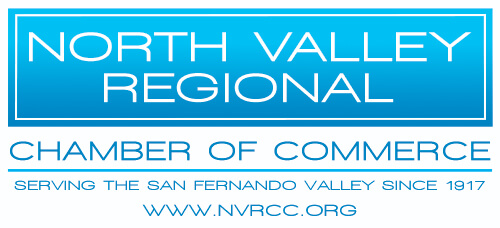New Legislation - Taking Effect on July 2024

July 1, 2024
Understanding AB 1013: Enhancing Safety Measures in California's On-
Sale General Public Premises
In California, the regulation of alcoholic beverage licenses falls under the purview of the Department of Alcoholic Beverage Control, governed by the Alcoholic Beverage Control Act. Recently, Assembly Bill 1013, introduced by Assembly Member Lowenthal, seeks to introduce significant safety measures in establishments holding Type 48 licenses—specifically those classified as on-sale general public premises. A Type 48 includes Bars and Night Clubs. Authorizes the sale of beer, wine and distilled spirits for consumption on the premises where sold. Authorizes the sale of beer and wine for consumption off the premises where sold. Minors are not allowed to enter and remain Food service is not required.
What is AB 1013?
AB 1013 mandates that applicants for new permanent Type 48 licenses or current holders of such licenses must provide drug testing devices for sale to their customers. These devices, which include test strips, stickers, and other applicable tools, are designed to detect the presence of controlled substances in beverages. This measure aims to combat instances of drink tampering, particularly substances like flunitrazepam (commonly known as roofies), ketamine, and gamma hydroxybutyric acid (GHB).
Key Provisions of AB 1013
1. Mandatory Availability of Drug Testing Devices:
o Licensees must offer these devices for sale at a cost not exceeding a
reasonable amount based on wholesale costs.
2. Prominent Notice Requirement:
o A licensee must prominently display a notice in their premises informing
customers of the availability of drug testing devices. The notice must
convey a message such as: "Don’t get roofied! Drink spiking drug test kits
available here."
3. Liability and Safety Assurance:
o Licensees are not liable for any defects or inaccuracies in the testing
devices, including false positive or false negative results.
o They must ensure that all testing devices offered have not expired or
exceeded their recommended period of use.
4. Non-Criminal Violation:
o Contravention of these provisions does not constitute a criminal offense,
distinguishing it from other violations under the Alcoholic Beverage Control
Act.
5. Implementation and Information Dissemination:
o The Department of Alcoholic Beverage Control is tasked with
disseminating information about AB 1013, including requirements for
signage and types of approved drug testing devices, via its official
website.
6. Operational Timeline:
o AB 1013 is set to become effective on July 1, 2024, with a sunset
provision on January 1, 2027, unless extended or revised.
Rationale and Implications
According to the Bills authors, the introduction of AB 1013 underscores California's commitment to enhancing consumer safety in nightlife environments where alcohol is sold. By making drug testing devices readily available, patrons have an additional tool to safeguard themselves against potential drink tampering incidents. Moreover, the bill provides clarity regarding licensee responsibilities and immunity from certain liabilities associated with the use of these devices.
AB 1013 represents a proactive legislative response to emerging safety concerns in
public premises serving alcoholic beverages. By mandating the availability of drug
testing devices and ensuring licensee compliance, California aims to foster safer
environments and empower consumers to make informed choices about their well-being while enjoying nightlife activities.

July 1, 2024
An Overview of California's SB 684:
Streamlining Small Residential Development
California is known for its rigorous land use and housing regulations, which can often slow down the development of new housing projects. To address housing shortages and streamline the approval process for smaller residential projects, SB 684, introduced by Senator Caballero, proposes a series of measures aimed at facilitating the development of small housing projects on urban lots. Here’s a brief overview of what SB 684 entails and its implications for local agencies and developers.
What is SB 684?
SB 684 is a legislative bill that aims to streamline the approval processes for housing development projects that consist of 10 or fewer residential units on urban lots smaller than 5 acres. The bill builds on existing laws like the Subdivision Map Act and the Planning and Zoning Law, introducing specific provisions to reduce bureaucratic hurdles and expedite the development of smaller-scale housing projects.
Key Provisions of SB 684
1. Ministerial Approval Process:
o Local agencies are required to consider parcel maps or tentative and final maps for qualifying housing development projects ministerially. This means these projects will be approved without discretionary review or public hearings, significantly speeding up the approval process.
2. Project Qualifications:
o To qualify, the proposed subdivision must result in 10 or fewer parcels, and the housing project must consist of 10 or fewer residential units.
o The development must be located on a lot zoned for multifamily residential use, no larger than 5 acres, and surrounded substantially by qualified urban uses.
3. Exemptions from Certain Requirements:
o The bill exempts qualifying projects from some requirements related to minimum parcel size and dimensions, and the formation of a homeowners' association.
4. Objective Standards Only:
o While local agencies can impose objective zoning, subdivision, and design standards, they cannot impose standards that would physically preclude the development of the project or impose additional requirements solely because the project is receiving streamlined approval.
5. Streamlined Decision-Making:
o Local agencies must approve or deny a completed application within 60 days of receipt. If no action is taken within this period, the application is deemed approved. Denials must be accompanied by a written explanation of deficiencies and how they can be remedied.
6. Building Permit Issuance:
o Local agencies must issue building permits for approved projects meeting the stipulated requirements, including tentative map approval and a complete building permit application.
7. CEQA Exemptions:
o Projects approved under SB 684’s streamlined process are exempt from the California Environmental Quality Act (CEQA), further reducing potential delays associated with environmental review processes.
8. No Accessory Dwelling Unit Requirement:
o Local agencies are not required to permit accessory dwelling units (ADUs) or junior accessory dwelling units (JADUs) on parcels created through the
streamlined process outlined in SB 684.
9. Implementation and Timeline:
o Most provisions of SB 684 will become operative on July 1, 2024, with specific exceptions for certain zones and requirements.
10. Statewide Concern:
o The bill includes findings that the changes it proposes address statewide concerns, thereby applying uniformly across all cities, including charter cities.
Implications of SB 684
SB 684 is designed to alleviate some of the housing pressures in California by simplifying and expediting the approval process for small-scale housing projects. For developers, this means reduced wait times and lower costs associated with lengthy approval processes. For local agencies, it necessitates adjustments to existing procedures to comply with the new streamlined requirements.
By focusing on urban lots and smaller projects, SB 684 aims to encourage infill development and make efficient use of existing urban spaces, potentially leading to an increase in housing supply and contributing to broader housing affordability goals.
Conclusion
SB 684 represents a strategic effort by California legislators to tackle housing shortages by easing the regulatory burden on smaller residential projects. By streamlining the approval process and removing certain bureaucratic barriers, the bill aims to promote more rapid development of housing in urban areas, thereby addressing one of the state's most pressing issues. As the bill's provisions come into effect, it will be crucial for local agencies, developers, and stakeholders to collaborate effectively to realize its potential benefits.

July 1, 2024
Ensuring Transparent Pricing: Exploring California's SB 478 - Consumers Legal
Remedies Act
In today's marketplace, consumers rely heavily on advertised prices when making purchasing decisions. However, hidden fees and charges often lurk beneath these advertised prices, leading to frustration and confusion. California Senate Bill 478 (SB 478), introduced by Senator Dodd, seeks to address this issue by enhancing transparency in advertising practices, specifically targeting the inclusion of mandatory fees and charges in price disclosures.
Current Challenges in Advertising Practices
Under existing California laws such as the False Advertising Law, Unfair Competition Law, and the Consumers Legal Remedies Act, deceptive advertising practices are prohibited. These laws aim to protect consumers from misleading claims and ensure that businesses adhere to fair practices. However, gaps exist when it comes to disclosing all fees and charges associated with a product or service.
For instance, vehicle rental companies are required to disclose additional charges apart from the base rental rate but may still omit certain fees from initial price displays. Similarly, lease contracts for vehicles must include disclaimers regarding taxes and fees, ensuring consumers are fully informed about the total costs involved.
SB 478: Enhancing Transparency
Effective July 1, 2024, SB 478 expands upon existing consumer protections by:
• Mandatory Fee Disclosure: Requiring advertisements, displays, or offers for goods or services to include all mandatory fees and charges, except taxes or fees imposed by the government. This ensures that consumers see the full price upfront, reducing surprises at checkout.
• Clarifying Government-imposed Fees: Specifying that assessments under various acts, like the California Tourism Marketing Act and the Property and Business Improvement District Law, are considered government-imposed fees for disclosure purposes. This prevents businesses from excluding these fees from advertised prices.
• Exclusions for Specific Industries: Providing exemptions for vehicle rental companies, lessors of vehicles, and motor vehicle dealers from certain violations related to fee disclosures, provided they comply with existing requirements to disclose additional charges separately.
Impact on Consumers and Businesses
SB 478 aims to empower consumers by:
• Empowering Informed Decisions: Enabling consumers to make informed purchasing decisions without hidden costs impacting their budgets post-purchase.
• Enhancing Accountability: Holding businesses accountable for transparent pricing practices, thereby fostering trust and loyalty among consumers.
• Legal Clarity: Providing clear guidelines for businesses to follow, ensuring compliance with the law while promoting fair competition in the marketplace.
Looking Ahead
As SB 478 prepares to take effect, both consumers and businesses in California are poised for change. Consumers can expect greater transparency in pricing, while businesses will need to adjust their advertising practices to comply with the new law. This shift towards clarity and accountability reflects California's commitment to consumer rights and fair business practices.
In conclusion, SB 478 represents a crucial step towards fairer advertising practices in California. By requiring comprehensive fee disclosures, the bill aims to empower consumers, foster trust in businesses, and create a more equitable marketplace for all.
Disclaimer: Legislative details and timelines are subject to change. For the latest updates and
specifics regarding SB 478, please refer to official California legislative resources.

July 1, 2024
AB 537: Ensuring Transparency in Short-Term Lodging Rates
In today's rapidly evolving hospitality landscape, transparency and consumer protection have become paramount concerns. AB 537, introduced by Assemblymember Berman, addresses these issues head-on by amending existing regulations concerning short-term lodging advertisements and rate disclosures. This bill is a significant step towards fostering trust between consumers and lodging providers, ensuring that guests are fully aware of the costs associated with their stays.
Current Legislation: A Foundation for Truthful Advertising
Existing laws already prohibit misleading advertising by motels and similar establishments. It is unlawful for these businesses to post or maintain outdoor
advertising that includes untrue, misleading, false, or fraudulent representations.
Additionally, they must adhere to specific requirements regarding outdoor signs.
Furthermore, in times of emergency, such as a state of emergency declared by the
President, the Governor, or a local authority, these establishments are prohibited from increasing their rates, protecting consumers from price gouging during crises.
The Need for AB 537: Closing Gaps in Consumer Protection
While current laws address outdoor advertising and price stability during emergencies, there has been a growing concern about hidden fees and charges that are not disclosed upfront in short-term lodging advertisements. Consumers often encounter unexpected costs when booking accommodations, leading to frustration and a sense of deception. AB 537 seeks to rectify this by ensuring that all advertised room rates for short-term lodgings are inclusive of all mandatory fees and charges, apart from taxes and government-imposed fees.
Key Provisions of AB 537
1. Comprehensive Rate Disclosure: The bill mandates that all fees or charges required for a stay must be included in the advertised room rate. This ensures that the price consumers see is the price they pay, fostering greater transparency and trust.
2. Inclusion of Government-Imposed Fees: Before consumers finalize their
reservations, the total price, including all taxes and government-imposed fees, must be clearly stated. This provision eliminates any last-minute surprises and allows consumers to make informed decisions based on the full cost of their stay.
3. Civil Penalties for Non-Compliance: Violations of these provisions can result in civil penalties of up to $10,000. This substantial penalty underscores the importance of compliance and serves as a deterrent against deceptive practices.
4. Enforcement by Authorities: The bill empowers city attorneys, district
attorneys, county counsels, and the Attorney General to enforce these provisions. This multi-tiered enforcement mechanism ensures that violations are addressed promptly and effectively.
Implementation and Impact
AB 537 is set to become operative on July 1, 2024. This gives short-term lodging providers ample time to adjust their advertising and booking practices to comply with the new requirements. The bill's implementation will likely lead to a more transparent marketplace, where consumers can confidently book accommodations without fear of hidden charges.
AB 537 represents a significant advancement in consumer protection within the short-term lodging industry. By requiring comprehensive rate disclosures and including government-imposed fees in the total price, the bill ensures that consumers are fully informed about the costs associated with their stays. The enforcement provisions and substantial penalties for non-compliance further reinforce the importance of transparency and fairness in the hospitality sector. As we approach the bill's operative date, both consumers and lodging providers can look forward to a clearer, more honest marketplace.
